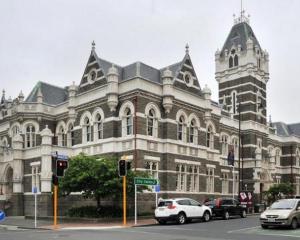
On Monday, police used tear gas and rubber bullets to control crowds at an anti-corruption protest in Kathmandu, Nepal, killing at least 25 people.
The Nepali parliament was set ablaze by protesters and the prime minister, Khadga Prasad Sharma Oli, resigned on Tuesday.
The Dunedin-based community hosted a vigil in the Octagon on Tuesday night in remembrance of those who died demonstrating against corruption in the Nepali government during the "Gen Z protest".
"We feel the pain," vigil organiser Ashik Banstola said.
"We are physically far away, but we are still with them in their protest."
The Nepali community grieved the loss of young people that were killed at the protest organised for mostly people under 30 to attend.
It also prayed for a speedy recovery for the people who were injured and in hospital.
There were a lot of tears at the vigil.
"People are really devastated to see young people losing their life fighting against the country."
The protest was triggered by a social media ban made by the government, but had been brewing for a while because of widespread corruption.
Nepali Dunedin resident Tamanna Dhakal said it was "unreal" watching her country come undone from afar.
"You don’t even have a home to go back to.
"I feel helpless watching from here."
The protest was being held to ensure there was a future, but it felt like everything was back to "ground zero".
Her cousins had been at the protest and they witnessed the peaceful rally descend into chaos.
"People came there with so much clarity and then suddenly, it just started.
"There were gunshots and barricades being broken just out of nowhere."
Her cousin was singing and dancing at the protest when he saw three people on a bike taking a person who had been shot to the hospital.
"They had to just leave because they had to save their lives."
The Nepali community was considering setting up a GoFundMe page to send monetary support for victims and their families.
Reuters reported soldiers were patrolling the streets of Kathmandu and an indefinite curfew had been set.
"We are trying to normalise the situation first," army spokesman Raja Ram Basnet said.
"We are committed to protect the life and property of people." — Additional reporting Reuters.











